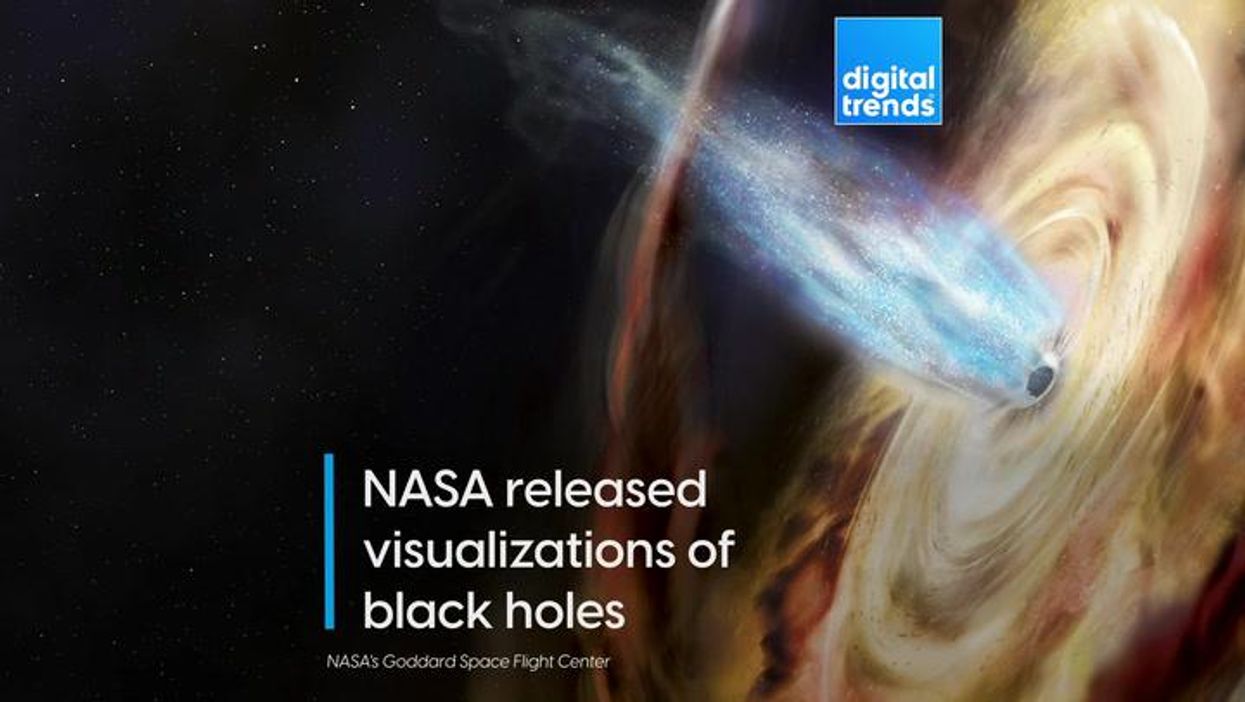Ariana Baio
Jun 22, 2022
See NASA's selections of the best visualizations of black holes
Video
It's normal to wonder about the inexplicable things in life and for many people black holes are one of those topics that make you think "what if...".
We hear all about black holes from astronomers and scientists who dedicate their lives to studying them. Whether it's determining what one may sound like or photographing what a black hole looks like it's fascinating to understand the parts of the universe we cannot visit.
But why can't we go near a black hole? What would happen if you got sucked into one? According to scientists from NASA, it wouldn't be great.
A person would have to reach the 'event horizon' of a black hole first in order to experience it. At this point, there is no way to escape the intense gravitational pull, not even light can pass through.
In fact, it would be so strong that while a person got sucked into a black hole they would experience a completely different perception of time and space all while being pulled vertically and condensed horizontally in a process known as "spaghettification."
Sign up for our free Indy100 weekly newsletter
\u201cimagine discovering something as harrowing as the effect a black hole has on something and calling it something absolutely wizard like "spaghettification"\u201d— Dan Ahern \ud83c\udfae (@Dan Ahern \ud83c\udfae) 1655669966
Scientists use Albert Einstein's General Theory of Relativity and observations of black holes tearing apart stars to determine this most likely scenario when dealing with a stellar-mass black hole or one with a mass of tens of times the mass of the Sun.
Fortunately, no person has, or will likely, experienced spaghettification because black holes are too far away for humans to reach.
But there is some evidence to suggest that supermassive black holes would deliver a different experience. Unlike stellar black holes, supermassive ones would take much longer to cross the event horizon and it would be more peaceful.
In fact, no one is sure how confusing or violent the experience for one in a supermassive black hole would be.
"Some people think that conventional physics breaks down at the event horizon, and all sorts of weird stuff happens to you—including that you possibly never manage to pierce the event horizon." Glenn Starkman, a physicist and astronomer at Case Western Reserve University, told Newsweek.
Stephen Hawking even once proposed that people could escape a supermassive black hole using stars.
But hopefully people won't have to worry about falling in a black hole in the near future.
Have your say in our news democracy. Click the upvote icon at the top of the page to help raise this article through the indy100 rankings
Top 100
The Conversation (0)














